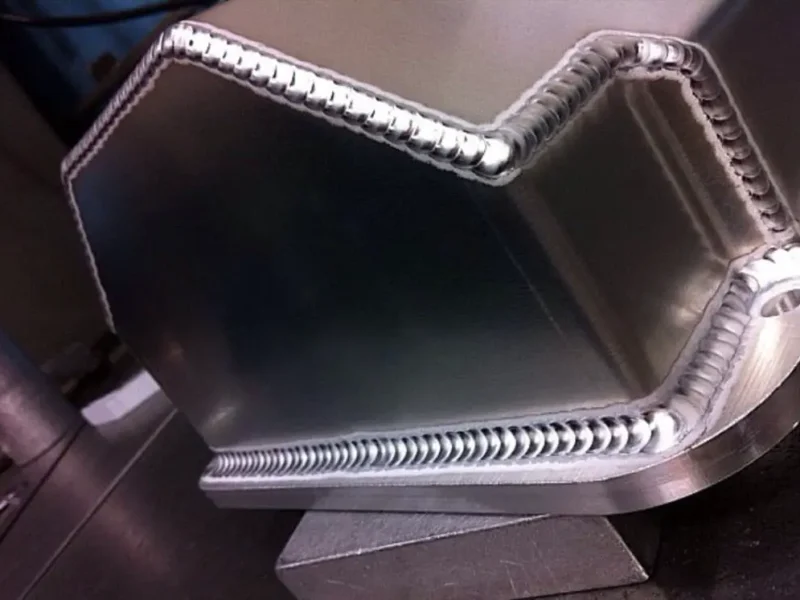Welding is a vital skill in industries ranging from construction and manufacturing to aerospace and automotive. It involves joining metals to create structures and components essential for various applications. However, as industries evolve, the demand for skilled and certified welders continues to grow. Investing in a welding certification is not just an investment in skill development but also in expanding career opportunities and earning potential. This article explores the numerous benefits of obtaining a welding certification and how it can open doors to a thriving career.
What Is a Welding Certification?
A welding certification is a formal credential that verifies a welder’s proficiency in specific welding processes and techniques. It is awarded by recognized organizations, such as:
- American Welding Society (AWS)
- American Society of Mechanical Engineers (ASME)
- Canadian Welding Bureau (CWB)
Certification involves passing written and practical tests that assess a welder’s ability to meet industry standards. These certifications are often tailored to specific welding methods, materials, and applications, such as:
- Shielded Metal Arc Welding (SMAW)
- Gas Tungsten Arc Welding (GTAW/TIG)
- Gas Metal Arc Welding (GMAW/MIG)
- Flux-Cored Arc Welding (FCAW)
Benefits of Welding Certification
1. Enhanced Career Opportunities
Certified welders are in high demand across various industries, and a welding certification sets candidates apart in a competitive job market. Employers often prefer certified welders because the certification guarantees that the individual has the required skills and knowledge to perform high-quality work.
Industries Where Certified Welders Are Valued:
- Construction: Welding is essential for building bridges, skyscrapers, and infrastructure.
- Aerospace: Certified welders contribute to the assembly of aircraft and spacecraft components.
- Oil and Gas: Welders play a critical role in fabricating pipelines, rigs, and storage tanks.
- Automotive: The manufacturing of vehicles relies heavily on precision welding.
2. Increased Earning Potential
Certified welders typically earn higher wages compared to their uncertified counterparts. Employers are willing to pay a premium for the assurance of quality and safety that certified welders bring to the table.
Factors Influencing Earning Potential:
- Type of Certification: Advanced certifications, such as AWS Certified Welding Inspector (CWI), command higher salaries.
- Specialized Skills: Certifications in niche areas, like underwater welding, can lead to lucrative opportunities.
- Experience Level: Combining certification with hands-on experience further boosts earning potential.
3. Job Security
The demand for skilled welders is consistent, even during economic downturns. Industries like construction, energy, and manufacturing rely heavily on welding, ensuring that certified welders have stable job prospects. Additionally, certifications demonstrate adaptability and commitment to professional growth, making certified welders more likely to retain their positions during workforce reductions.
4. Opportunities for Advancement
Certification serves as a stepping stone for career growth. Certified welders can advance into supervisory, inspection, or instructional roles. For example:
- Welding Inspector: AWS CWI certification qualifies individuals to inspect and ensure the quality of welded structures.
- Welding Supervisor: Certification enhances leadership skills, enabling welders to manage teams and oversee projects.
- Welding Instructor: Certified welders can teach and mentor the next generation of welders, sharing their expertise and experiences.
5. Access to Specialized Fields
Certain industries require specialized welding techniques that only certified professionals can perform. Examples include:
- Underwater Welding: Certified underwater welders work on submerged structures like offshore oil rigs and ship hulls.
- Pipeline Welding: Welders with certifications in pipe welding contribute to the construction of oil and gas pipelines.
- Nuclear Welding: Certified nuclear welders ensure the safety and integrity of structures in nuclear power plants.
6. Improved Safety and Compliance
Welding certification programs emphasize safety standards and practices, ensuring that certified welders are well-versed in preventing accidents and hazards. Employers value this knowledge as it reduces workplace injuries and ensures compliance with industry regulations.
Key Safety Benefits:
- Understanding proper equipment handling.
- Knowledge of safety protocols for different environments.
- Adherence to codes and standards, such as ASME Section IX.
7. Personal and Professional Development
Pursuing a welding certification fosters personal growth and confidence. Welders gain a sense of accomplishment and pride in their work, which translates to greater job satisfaction. Professionally, certification demonstrates dedication and a willingness to stay updated with industry advancements.
Types of Welding Certifications
Entry-Level Certifications
- AWS Certified Welder (CW): Validates basic welding skills.
- ASME Boiler and Pressure Vessel Certification: For welders working on pressure vessels and boilers.
Advanced Certifications
- AWS Certified Welding Inspector (CWI): Focuses on inspection and quality control.
- Certified Robotic Arc Welding (CRAW): For welders specializing in robotic systems.
- Certified Welding Educator (CWE): Prepares welders to teach and train others.
Specialty Certifications
- Underwater Welding Certification: For welders working in marine environments.
- Nuclear Welding Certification: Focuses on the stringent requirements of the nuclear industry.
Steps to Obtain a Welding Certification
- Research Certification Requirements: Identify the certification that aligns with your career goals.
- Enroll in a Training Program: Join a welding school or apprenticeship to develop the necessary skills.
- Practice Welding Techniques: Gain hands-on experience with the specific processes covered in the certification.
- Take the Certification Exam: Pass the written and practical tests to earn your credential.
- Maintain Certification: Some certifications require periodic renewal or continuing education.
Cost of Welding Certification
The cost of obtaining a welding certification varies depending on the type of certification and training program. Typical expenses include:
- Training Programs: $500 to $10,000, depending on the duration and institution.
- Exam Fees: $200 to $1,000 per certification.
- Renewal Fees: $50 to $500 every few years.
While the upfront cost may seem significant, the long-term benefits, including higher earnings and career stability, outweigh the investment.
Challenges of Obtaining Welding Certification
- Financial Constraints: The cost of training and exams can be a barrier for some individuals.
- Time Commitment: Preparing for certification requires dedication and time, especially for advanced credentials.
- Technical Complexity: Certification exams test advanced knowledge and skills, which can be challenging for beginners.
Overcoming Challenges
- Seek scholarships or employer-sponsored training programs.
- Develop a study schedule to balance work, training, and exam preparation.
- Start with entry-level certifications to build foundational skills.
Conclusion
Investing in a welding certification is a smart decision for anyone seeking to advance their career in the welding industry. Certified welders enjoy enhanced job opportunities, higher earning potential, and access to specialized fields. Moreover, certification demonstrates a commitment to quality, safety, and professional growth, making certified welders invaluable assets to employers. By pursuing certification, welders not only secure a stable and rewarding career but also contribute to the innovation and development of critical industries worldwide.


